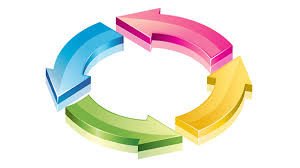
Quick Takes:
There’s one thing I’ve learned while helping build a company from a semi-functioning, seeded funded startup, to a venture capital darling of the mobile advertising industry. And it’s not some “secret sauce” that only successful companies know about. It’s not even about culture, revenue, or profit, although it directly affects all three.
Many of us approach business like “a chicken running around with its head cut off.” If something isn’t working, we can’t quite identify what it is, and if something IS working, we can’t quite figure out why. It’s actually the latter that is the biggest hinderance. If something works, why fix it? Well, if it’s working because you the entrepreneur are logging hundreds of hours and answering thousands of emails, what’s working clearly isn’t scalable.
In order to build a business and life worth leading, it’s imperative that we become product people.
 First, what does it mean to be a product person? A product person is someone who can conceptualize the flow of a business or entity, from production to sale. Whether it’s a tech company with no physical assets or a manufacturing company with only physical assets, a product-oriented business person is able to understand the business from end-to-end.
First, what does it mean to be a product person? A product person is someone who can conceptualize the flow of a business or entity, from production to sale. Whether it’s a tech company with no physical assets or a manufacturing company with only physical assets, a product-oriented business person is able to understand the business from end-to-end.
They understand what the product is, how it’s built, why it’s built the way it is, and who it’s being sold to.
But most important, by understanding the process flow of the business, a product person understands what current systems are in place, how they can be more efficient, and what systems need to be in place in order to scale.
Taking a step back, a business is a set of systems, set up by entrepreneurs in an automated fashion, so that they can run, self-sufficiently, without the constant supervision of it’s creators.
An efficient business, whether it be a lifestyle company or a fortune 500 company, is one that has defined systems and processes that allow it to achieve its end goal with minimal waste. Whether that waste be time, money, or resources, systems and processes are put in place to mitigate.
For a business to be successful, it’s imperative that it’s systems are either defined or refined, with an end goal of automation or scalability.
That means for you to be successful as an aspiring entrepreneur, you need the ability to conceptually see the systems and processes that make up a business, and than know how to make them better. Know how to make them more efficient.
I’ve mentioned it before, but what’s so cool about business is that it’s as physical as it is psychological. Often times you can’t see a system or process, it just is. Like artwork, a product person is able to see these qualitative aspects of a business as concrete things in their mind, and then have the ability to express them in the physical world.
 Whiteboarding is a great way to practice being product oriented. If you currently work in a business, take some time to map out the process flow of the entire company.
Whiteboarding is a great way to practice being product oriented. If you currently work in a business, take some time to map out the process flow of the entire company.
How many steps does it take to get from raw materials to customer satisfaction? Are there ways to reduce those steps? Ways to make them quicker while keeping their efficiency? When you start to ask yourselves these questions, you start to think like a product person.
What’s more, once maximum efficiency is reached with current resources, it’s the job of a product person to reallocate those resources so that the best assets are working toward the best systems and processes.
If you have 5 computer engineers, for example, and the user interface of your flagship app has a bug, you’d immediately reallocate your engineering resources toward fixing that app. Once fixed, you’d probably put a process in place so a bug like that won’t happen again. And you’d do this by dedicating an engineer to the quality assurance of the app.
This might take time away from another project, but as your flagship app, it’s imperative that the user experience is seamless.
A good product person would be able to identify a problem like that, figure out a way to reallocate resources to fix the problem, and then know what type of future system and what type of resources are needed so: the problem occurs less often, revenue is restored (if you’re making any, you Silicon Valley App developers you), and value is returned to the consumer.
In essence, a product-minded person is able to see the gears of a business, and then knows how to grease the gears to make them run smoother.
So whether you’re an aspiring entrepreneur, a solo-preneur, or part of a larger organization, be a product person. Not only will it make your business more efficient, but it will make you more efficient. And I don’t need to tell you that whether you’re goal is massive profits, massive social impact, or massive free time, efficiency is all that matters.